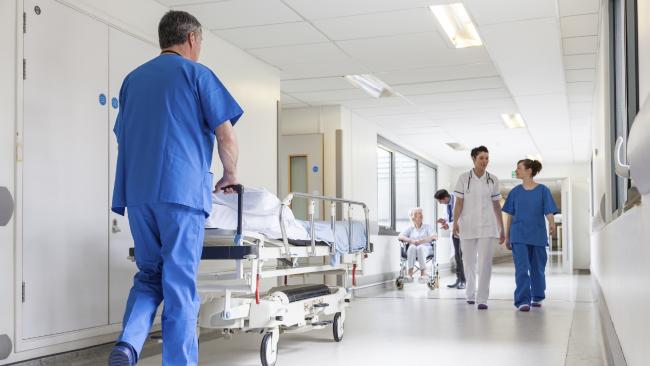In the days straight after the federal election, I stood in a doctor’s waiting room, with a sad, soon-to-be panicked child. As I looked around the reception area for notices regarding bulk billing eligibility and restrictions, I had the strange suspicion that this small regional medical centre did not seem to bulk bill.
The election had brought Medicare into sharp focus, and here we were, city dwellers, usually with a choice of medical services at our doorstep, at a small-town GP, shelling out $80 for a consult (it turned out that billing was at the doctor’s discretion: pensioners and health care card holders are bulk-billed here, but I was charged for my child’s appointment).
Money wasn’t the main focus for me, luckily, but I was aware, in this post-election mess, that for many, such a trip to the doctor for a kid’s school holiday injury could break the weekly budget. After the GP, there was the X-ray in a neighbouring town ($90), a return to the GP, and the instruction to “go to the hospital”. Yes, there was a fracture. It might need surgery, she said, maybe inserting a wire.
I looked across at the kid who at this point was looking as if he had been strapped into an electric chair. The private hospital charged $195 just to be admitted by the triage nurse. After a brief wait, and a much-appreciated complimentary round of sandwiches and cup of tea, we were seen by an ED physician. Expert opinion, a new, improved plaster cast and a referral, and we were out of there. No surgery, for now.
This encounter with the health system got me pondering a recent article about Melbourne parents increasingly choosing to use hospital emergency departments for their children’s minor ailments rather than GPs. The article suggested that parents may have lost faith in their GP’s capacity to reliably diagnose children’s illnesses and injuries. In addition, the research suggested there may be the issue of lack of availability of appointments in some areas. The Royal Children’s Hospital has had a sharp increase in ED use, prompting Professor Gary Freed, whose work is referenced in the article, to say: “In a decade, your system will break. It’s already fracturing.”
But now I wonder, after my recent experience, how much of this parent behaviour is related more to cost? My eight-hour to and fro between GP, X-ray centre, back to GP and then to hospital has left me more than $300 out of pocket. As my medico mate said to me, “Why didn’t you just go to the public hospital? It would have been free.” At the public hospital I’d have received X-rays and access to specialist opinion, all in the one place, at minimal cost but to my patience.
I had chosen to hope there would be no fracture, so the GP seemed the wisest option to start with. I still think it was the right course of action for us, though my credit card took a battering. But, in reality, this amount of money might be the cost of the winter electricity bill, or a kid’s birthday party; for some, this would be unthinkable. Freed’s research found in fact that “the perceived cost of appointments may be influencing the behaviour of parents seeking care for children with non-urgent conditions”.
Early last Sunday morning, Malcolm Turnbull stood and raged against Labor’s “Mediscare” campaign. A disgraceful “lie” that had swung voters against the Coalition. Yes, the swing was there, and it may well have been influenced by voter fear and distrust on this issue. As Turnbull conceded, the “ground was fertile” for this campaign. But it may also be that hefty out-of-pocket medical expenses are not a distant illusion, or a projected threat, but a real-life economic reality for some that no amount of “jobs and growth” rhetoric would make disappear.
There is a bunch of voters who may not be able to make the choice to go to the GP when their kid gets sick, again. For those parents “taking up space” in the ED, they may feel they have a right to be there. Sure, it can be said to be cost shifting between the federal and state governments, but as our government still provides medical care to all, why shouldn’t we use it?
For those with the capacity to pay, a school holiday fracture is a costly pain in the arm (or hand, or leg). For those who see that medical services are becoming too expensive to afford, maybe they feel they have the right to expect being given a helping hand. If the trickle down is drying up, why not go direct to the source? And then when the election result comes in, we’ll see who can mend this fractured policy.
